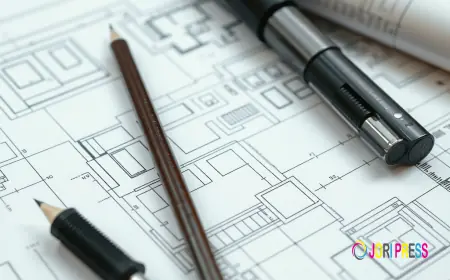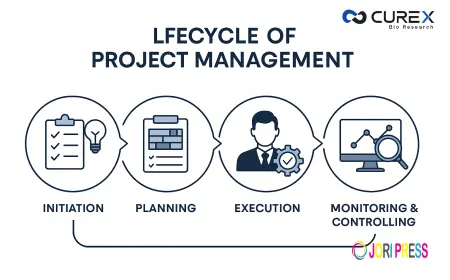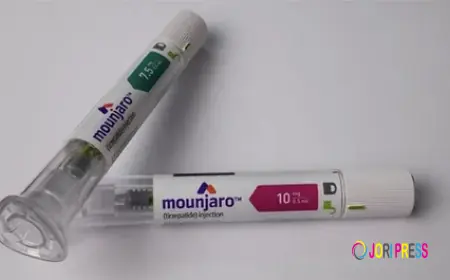Best Dermatologist Tips for Back and Body Acne
Back and body acne can be as frustrating as facial breakouts, sometimes even more so due to its larger surface area and difficulty to reach

Back and body acne can be as frustrating as facial breakouts, sometimes even more so due to its larger surface area and difficulty to reach. These blemishes occur when pores become clogged with excess oil, dead skin cells, and bacteria. Friction from tight clothing or sweat can worsen the condition, especially on the shoulders, upper back, and chest. Managing this type of acne often requires a different approach than facial acne due to differences in skin texture and oil production.Lets delve into Dermatologist Dubai
Why Back and Body Acne Is Hard to Treat
One reason back and body acne tends to linger is that these areas are more prone to pressure, heat, and sweat buildup. Wearing tight clothing, backpacks, or sports gear creates an environment that encourages clogged pores. In addition, these breakouts can often go unnoticed until they become widespread or painful. The skin on the back is thicker and has larger sebaceous glands, making it more susceptible to deeper, more inflamed acne lesions.
Key Hygiene Practices for Clearer Skin
Consistent hygiene plays a major role in preventing and managing back and body acne. Showering after sweating is critical, especially after exercise. Leaving sweat on the skin for too long can trap bacteria and oils in pores. Using a gentle cleanser formulated for acne-prone skin can help keep pores clean without over-drying. Exfoliation, when done correctly and not excessively, can also support skin renewal and unclog pores.
Importance of Fabric and Clothing Choices
What you wear can significantly impact your skin’s condition. Breathable fabrics such as cotton can reduce irritation and allow the skin to breathe. Loose-fitting clothes are better at preventing friction-related breakouts compared to tight garments that trap heat and sweat. Washing clothes and bedsheets frequently helps eliminate bacteria and oil buildup that can be transferred back to your skin.
Sweat Management and Body Care Habits
Sweat alone doesn’t cause acne, but when it mixes with oils and bacteria, it can lead to clogged pores. Choosing to change out of sweaty clothes quickly and shower soon after can prevent breakouts. Avoid sitting in damp workout clothes or towels for extended periods. Drying off with a clean towel and letting the skin breathe are easy habits that make a noticeable difference.
How Hair Products May Contribute
Sometimes the cause of body acne is not the skin itself but products used on the hair. Conditioners, oils, and styling products can run down your back and leave residue that clogs pores. This is especially common during showers when hair products are not fully rinsed off. It helps to wash your body after rinsing your hair to ensure no residue remains on the back and shoulders.
Stress and Its Impact on Acne
Emotional stress affects hormones, and hormones play a role in oil production. High-stress levels can lead to an increase in sebum, which clogs pores and contributes to breakouts. Managing stress through physical activity, sleep, or mindfulness practices may not seem directly related to acne but can improve skin health over time. A more balanced internal state often reflects on the skin’s surface.
Dietary Patterns and Skin Health
Certain eating habits may influence skin conditions, including back and body acne. Diets high in processed foods and refined sugars can lead to insulin spikes, which might trigger hormonal fluctuations and oil production. While food isn’t the only cause, developing balanced eating habits can support clearer skin. Hydration is also essential, as water helps flush toxins from the body and supports healthy skin function.
Benefits of Consistent Skincare Routines
Consistency is essential in acne management. Irregular cleansing and neglecting exfoliation can allow buildup to persist and cause flare-ups. Adopting a regular routine that involves gentle cleansing, proper rinsing, and maintaining clean clothing makes it easier to prevent acne before it becomes severe. Skipping skincare steps or being inconsistent can result in long-term issues with back and body breakouts.
Physical Activity and Acne Flare-Ups
Exercise is great for your health but can also trigger body acne if precautions aren’t taken. Friction from workout clothes, combined with sweat and movement, can cause irritation. This makes post-exercise hygiene crucial. Wearing clean, breathable clothes and using fresh towels during workouts help reduce risks. Avoid sharing gym equipment without wiping it down, as bacteria transfer can lead to new breakouts.
Best Dermatologist in Dubai Advice on Body Acne
Back and body acne can lower confidence and affect daily comfort. Following practical, proven guidance rather than relying on assumptions can help clear the skin more efficiently. The Best Dermatologist in Dubai often emphasizes how skin on the body responds differently than facial skin, so strategies must be tailored accordingly. For example, body skin requires less frequent exfoliation but more consistent cleansing due to greater sweat exposure.
Skin Protection in Daily Life
Protecting your skin from constant friction or pressure is just as important as cleansing. Bags, shoulder straps, and tight collars can create spots where acne tends to appear. Switching to more ergonomic bags and avoiding direct pressure on the skin can support a healthier back. It also helps to be mindful of how often you rest your back against surfaces, especially in hot environments.
Sleep and Skin Recovery
Nighttime is when the body repairs itself, including skin. Getting enough restful sleep supports the body's natural healing processes. Clean sheets, pillowcases, and sleepwear reduce the transfer of bacteria and oils to your skin during the night. Skipping sleep or not allowing your skin a clean surface to rest on can contribute to persistent acne.
Keeping Track of Progress
Because back and body acne can take longer to heal than facial acne, patience is vital. Monitoring changes in skin condition helps determine what habits are working. Photos or journal entries can serve as a useful way to observe progress over time. Even subtle improvements mean your efforts are effective and worth continuing.
Choosing the Right Shower Routine
The order in which you shower matters more than people think. Shampoo and conditioner can leave residues that may contribute to back acne if not rinsed off thoroughly. Washing your body after rinsing hair helps ensure that no products remain on your skin. This simple switch in your shower routine can reduce breakouts significantly.
The Role of Support Systems
Sometimes, managing acne can feel isolating or frustrating. Talking with others who experience the same challenges or sharing your routine with a friend can offer support. Encouragement, accountability, and emotional reassurance help maintain motivation and prevent discouragement. Clear skin often takes time, and having a support system can make the process less stressful.
Environmental Triggers to Avoid
High heat and humidity can make the skin more prone to sweat and oil buildup. If you live in a warm environment or spend time outdoors, keeping the skin clean and dry becomes even more essential. Towels and breathable clothing become your best tools in such conditions. Avoiding harsh sun exposure can also prevent inflammation that worsens acne spots.
Final Thoughts from the Best Dermatologist in Dubai
Creating a consistent, realistic approach to back and body acne is the key to lasting results. While these areas present unique challenges, they also respond well to the right care. The Best dermatologist in Dubai would highlight how lifestyle choices—like hygiene, clothing, and stress management—are often more powerful than any individual product. Clear skin is not a one-time achievement but a reflection of daily habits that respect how the body functions and heals.
What's Your Reaction?
 Like
0
Like
0
 Dislike
0
Dislike
0
 Love
0
Love
0
 Funny
0
Funny
0
 Angry
0
Angry
0
 Sad
0
Sad
0
 Wow
0
Wow
0
















































